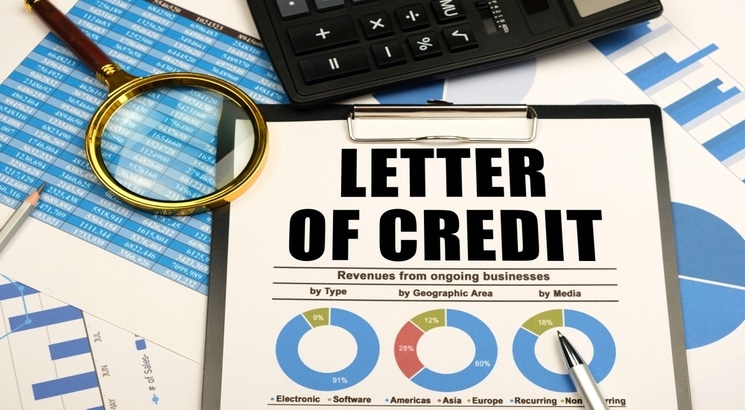Large business loans
Although large business loans are typically more difficult to secure than smaller financing options, thinking very big in business can bring outsize returns. Larger loans can provide the financial heft to propel your organisation to the next level and beyond.
What is considered a large business loan?
How do large business loans work and what are their uses?
Large business loans work like any other business financing – you borrow a sum of cash and pay it back over time – except the numbers are much bigger. These types of loan may need to be secured by the borrower’s collateral, or they may use other assets, such as the borrower’s sales receipts as security. Large business loans can be used for almost any legitimate business purpose, including:
- Expansion programs
- New product development and introduction
- Real estate purchases
- Business acquisitions
- Large equipment and machinery purchases
- Paying off more expensive short-term debts
Where can I find large business loans?
Large business loans can be obtained from banks, credit unions, lending marketplaces and specialist online lenders.
Types of large business loans
Commercial real estate loans
Commercial real estate loans (also known as commercial mortgages) are used to buy properties that have a business function. This would include income-producing properties such as factories, offices, stores, restaurants, gas stations, gyms, theaters, sporting venues, etc. Although commercial real estate loans are similar to the residential mortgages used to buy homes, they differ in some key areas:
Differences between commercial and residential real estate loans
| Commercial | Residential | |
|---|---|---|
| Primary borrower | Business entity | Private individual |
| Type of property | Commercial property | Private residence |
| Loan repayment period | 10 to 25 years | 15, 20 or 30 years |
| Maximum loan to value (LTV) | 65% to 85% LTV | 95% LTV |
| Interest rates | Higher than residential | Lower than commercial |
| Fees | Higher than residential | Lower than commercial |
| Pre-payment penalties | Common | Rare |
| Minimum score | Usually 600+ | Can be as low as 500 |
Secured business loans
Many large business loans will require the borrower to provide collateral – also known as security – to protect the lender from loss. Collateral typically means hard assets, such as real estate, land, or major plant and machinery, although it can also include soft assets such as inventory or even common stock.
Borrowing that uses collateral is called a ‘secured business loan’ and it can come in different varieties:
- Secured term loan: The most common type of secured business loan. You receive a single, lump-sum cash injection and then pay it back in regular instalments, plus interest and any fees, over a fixed period of up to 25 years. The loan is secured against assets owned by the borrower.
- Asset-based lending: Funds are lent against the value of assets owned by the borrower, or the funds are used to buy an asset that the borrower needs – such as land or machinery. In the either case, the lender retains a lien on the assets until the loan is repaid.
- Business line of credit: This type of large business loan functions like a high-value credit card but comes with lower interest rates and fees. Businesses can withdraw as much as they want when they want from a loan facility up to the limit of their borrowing. A line of credit can give you excellent peace of mind – you have access to funds when you need them, but you only pay interest on the sums that you withdraw. Depending on the size of the loan and the borrower’s credit, the line may be secured against assets owned by the borrower.
Accounts receivable financing
Accounts receivable finance, also known as invoice financing, this type of loan allows you to borrow against the value of your unpaid invoices and is best for B2B organisations. The lender will usually provide up to 95% of the invoice value within a few days or even hours of the bill being raised. Your invoices act as collateral, no added security is required.
Franchise loans
Franchise loans can cover the cost of joining a successful franchise operation, plus the costs to build-out a new business location, hire staff and run a marketing campaign to fuel your launch. The loan can even pay the running costs until your new business is firmly on its feet. Typically, you borrow against the value of your provided collateral or your future sales receipts.
How do I qualify for a large business loan?
Securing large business loans can be more challenging than getting a quick business loan for a few thousand dollars. As a rule of thumb, the larger the sum you are trying to borrow, the harder lenders will look at your business and your application, which means they will typically review:
- The risks associated with what your business does
- Your business and personal credit scores
- The length of time you have been in business
- Your business structure – corporation, LLC, partnership or other
- Your business track history – especially your repayment of debts
- Business and personal assets
- Your business plan – especially what you intend to use the funds for
- Any current debts or tax liabilities
Usually, you will need good credit, a strong business record, sound finances and a solid business plan to secure a large business loan. If you can meet these requirements, you may be ready to apply – see below:
How to get a large business loan
The actual lending criteria for large business loans will vary from lender to lender and the type of loan you are trying to obtain, however, general qualifications per loan type are:
| Loan type | Minimum credit score (Personal FICO) | Time in business (Minimum – years) | Annual gross revenue |
|---|---|---|---|
| Business term loan | 550+ | 6 months+ | £75,000+ |
| Business line of credit | 575+ | 1 year+ | £75,000+ |
| Invoice financing | 550+ | 1 year+ | £250,000+ |
| Revenue-based financing | 525+ | 4 months+ | £120,000+ |
| Equipment financing | 600+ | 1 year+ | £250,000+ |
How to improve your chances of getting approved
You can improve your chances of getting approved for a large business loan by preparing in advance. Key tasks to take care of include:
- Identify your need for the loan. Why do you need the money? You must present a strong case for funding to secure a large business loan and your financial records must support this need, indicating how the loan will deliver your plan – and critically, how you will pay the loan back.
- Check your personal and business credit scores. It is common for mistakes to occur on credit reports. Incorrect information could have an adverse impact on your loan application. Note that business credit scores are usually graded from 1 to 100 and are different than personal scores. A good business credit score is 80+ and a good score is 680+. If there are errors on your business or personal credit reports, get them fixed before applying for your loan. Be aware that fixing a credit score can take time and there are no ‘fast credit repairs’ despite the many promises from online ‘credit doctors’ who say they can perform miracles for your score.
- Get your paperwork in order. Lenders will need to see bank statements (at least 18 months), balance sheet, profit and loss statements, cashflow projections, list of debts, list of assets, customer database, documents that reveal the structure of your business (corporation, LLC, etc.), certificates of good standing, tax statements and more.
- Build a good business plan and pitch. Lenders will expect a detailed and insightful business plan that explains why you need the funds and what they will do for your business once you have them. Business plans should do more than paint a rosy picture – explain the risks involved, what the downsides could be – and how you intend to overcome them. If you cannot produce a business plan yourself, it may be worth paying an external service to do this for you.
- Shop around for loans. Large business loans are often custom deals, shaped to fit your business, which means no two loan offers will look alike. It therefore makes sense to shop around for different offers before settling on a lender. You can do this by approaching banks, credit unions and online lenders one by one, or you can use the services of a loan marketplace that will introduce you to a choice of large loan deals from different lenders. Some marketplace platforms can also give you advice and help you with the application process. This can be especially useful for business owners who have never taken out a large business loan before.
Can I get a large business loan with no collateral?
Possibly, although few lenders will lend large sums based on nothing more than a promise to repay. If you lack sufficient collateral yourself, you could ask a cosigner who has real estate or other assets to join the deal. Alternatively, you could consider a large loan that uses your sales receipts or invoices as security.
What are the alternatives to large business loans?
Business owners that do not qualify for a large business loan don’t have to abandon their big ideas. There may be other ways to secure the funds you need:
Venture capital
If you decide to seek outside investment, you can find networks of venture capitalists and angel investors available online.
Bringing in external investment can give you the cash you need, and it may also deliver a unique and extra set of skills and contacts that can help your organisation grow even faster. However, investors will usually want a piece of the action in exchange for their money. This will mean you giving up a share of your ownership and may loosen your overall control of the business. Some investors may also want higher dividends or royalty payments as well as their share of equity. Also note that venture capitalists and angel investors can be very picky about the businesses they choose to back. You could spend many months pursuing one lead after another before you find the right match.
Crowdfunding
Available via various online platforms, crowdfunding can bring in large sums if your presentation hits the right spot. Although you will need to be creative to raise big money in small donations from hundreds or even thousands of donors, you do not need to repay the cash if you spend it where you said you would. An eye-catching idea and a powerful pitch is essential to succeed with this funding option.




